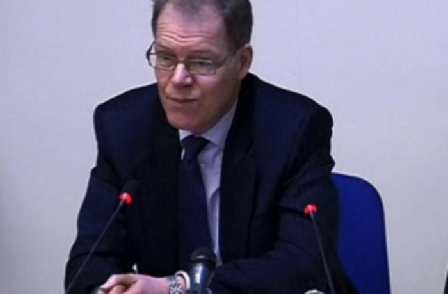
The names of journalists who paid for illegally-obtained private information look set to be publicly released after a legal judgment released today.
The Upper Tribunal at the Royal Courts of Justice has rejected an appeal by the Information Commissioner’s Office which has sought to keep secret the names of 305 journalists who bought information from ‘blagger’ Steve Whittamore.
The ICO gathered the journalists’ names as part of its Operation Motorman investigation into private investigator Steve Whittamore in 2003.
The investigation found widespread evidence that journalists purchased private information from Whittamore and that much of it was illegally obtained by him.
He received a conditional discharge but no journalists were prosecuted.
The ICO found that around 4,000 requests for information were made by 305 journalists from a wide variety of national newspapers and magazines. The Daily Mail made the most requests followed by the Sunday People.
Christopher Colenso-Dunne sought the names of the journalists via a Freedom of Information Act request to the ICO in 2011.
His request was rejected on the grounds that the names were “sensitive personal data”.
Colenso-Dunne appealed to the Information Tribunal and it ruled in November 2013 that some of the 305 names could be released.
After an appeal by the ICO judge Nicholas Wikeley, in the Upper Tribunal, and has now ruled that the first tribunal did not err in law and said that the names should be released.
Unless the ICO lodges a further appeal it must now release the journalists’ names.
According to the first tribunal, the reduced list of journalists which must be released comprises “those instances where there was at least a question mark over the legality of the transaction (but not an allegation of criminality as such)”.
The tribunal said: “Having carefully examined the information.. we have concluded that it does not constitute information as to the commission or alleged commission of any offence by any of the journalist identified in it.
“It does contain evidence that the investigator engaged by the journalist committed, or contemplated committing, criminal activity. And, self-evidently, it discloses that the investigator received some form of instruction from the journalist.
“But there is no suggestion…that the journalist had instructed the investigator to use unlawful methods or that he or she had turned a blind eye to their adoption or, indeed, whether he or she had in fact expressly forbidden the investigator from doing anything that was not strictly legal.”
Whittamore’s services included finding ex-directory telephone numbers and finding addresses from mobile telephone numbers and vehicle registration plates.
He also accessed telephone bills and BT “friends and family” telephone number lists. Whittamore’s methods included ‘blagging’ – using deception to obtain information over the telephone.
Information Commissioner Christopher Graham pictured top.
Read the full judgment Information Commissioner v Colenso-Dunne (Upper Tribunal) here.
Email pged@pressgazette.co.uk to point out mistakes, provide story tips or send in a letter for publication on our "Letters Page" blog
